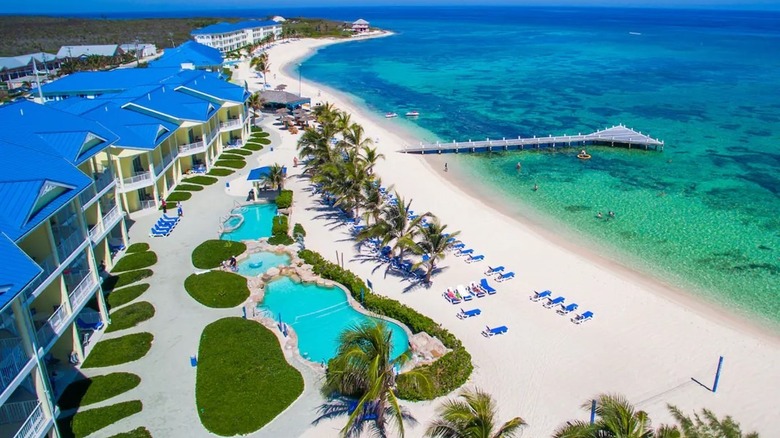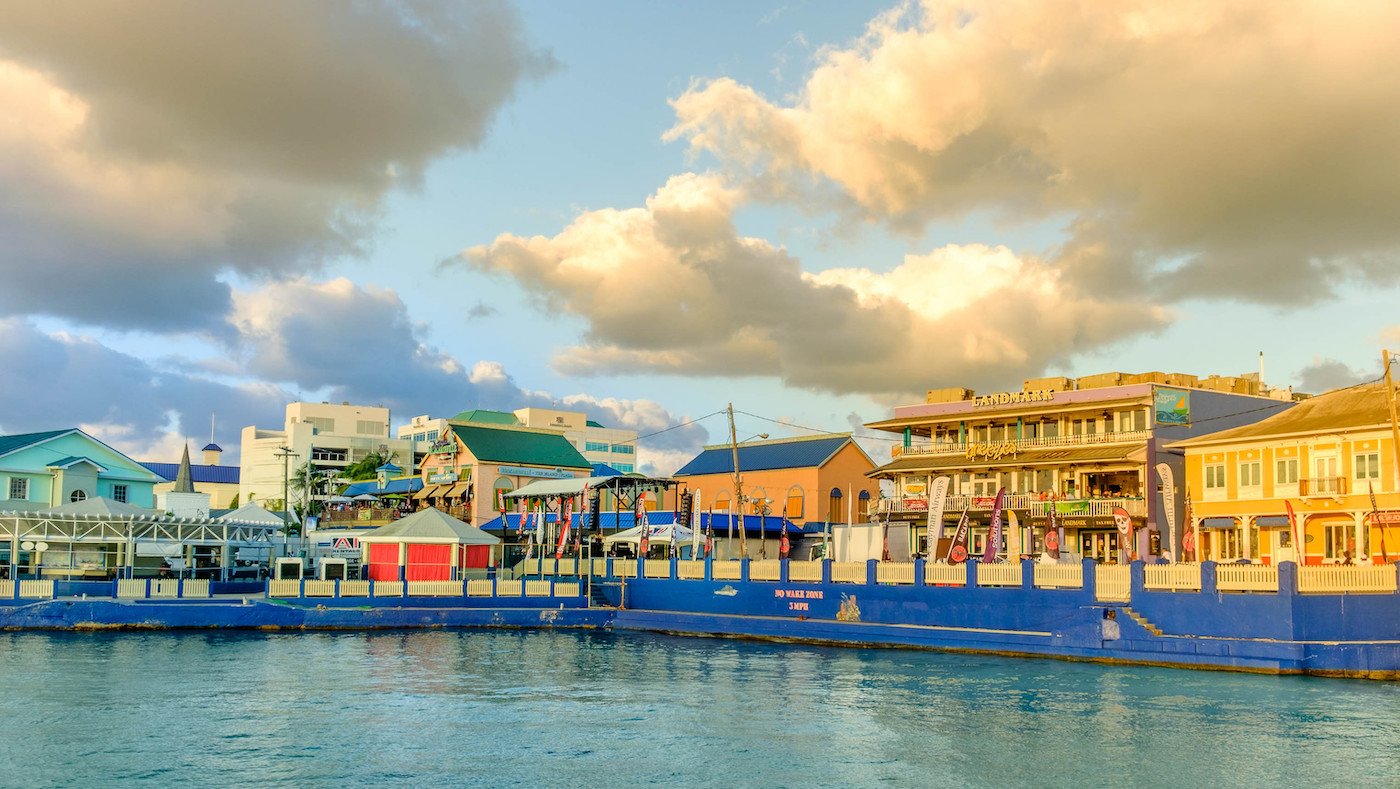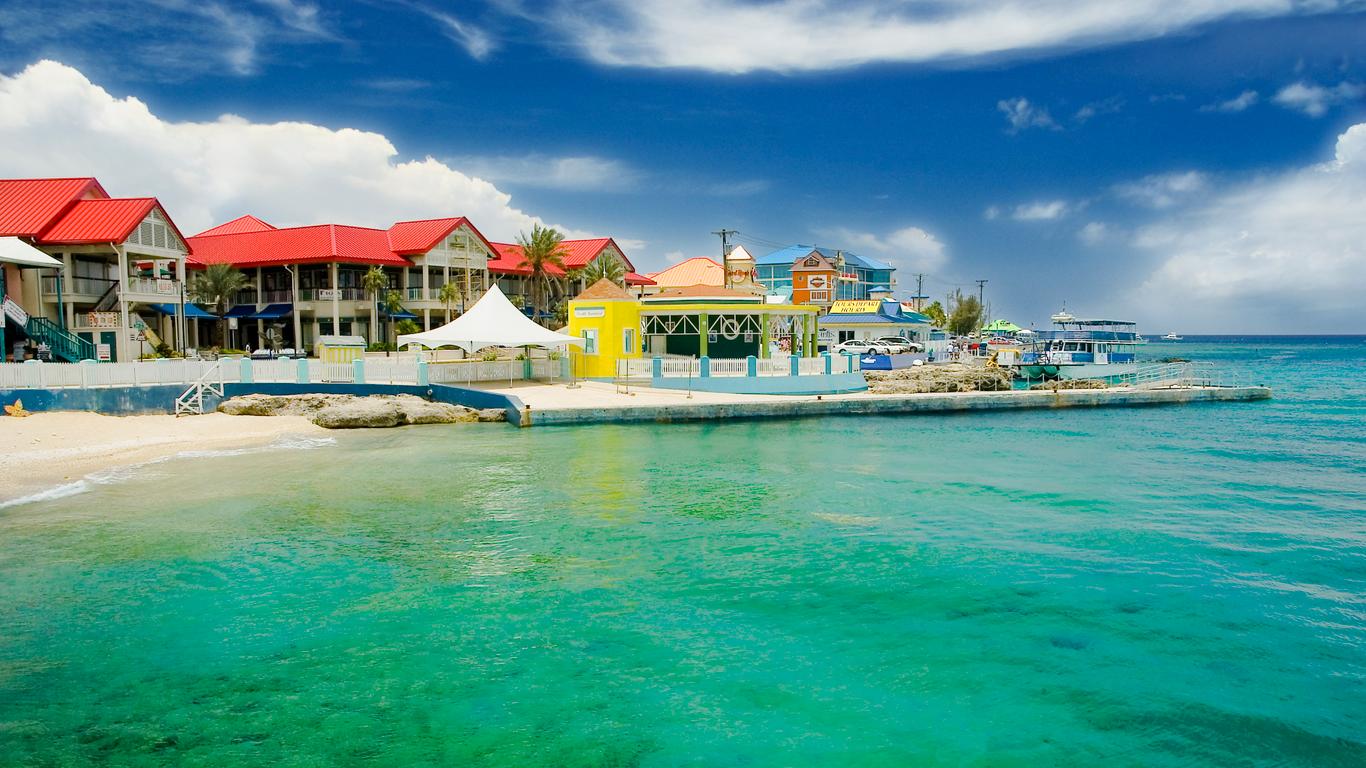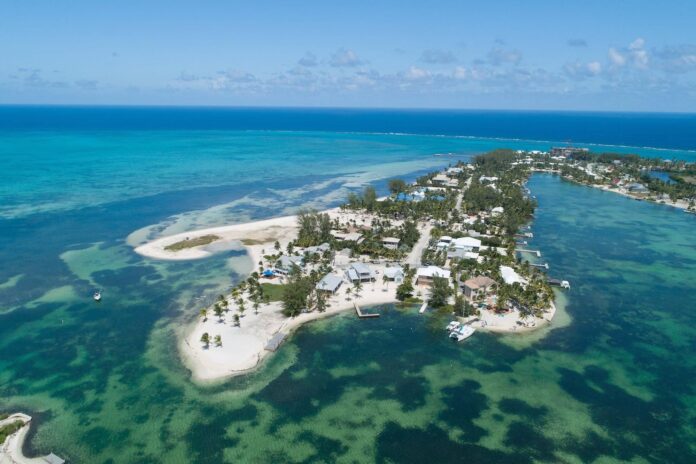An Overview of the Cayman Islands
A suitable business location, nestled in the western Caribbean, the Cayman Islands, a British Overseas Territory, consists of three idyllic islands: Grand Cayman, Cayman Brac, and Little Cayman. Renowned for their breathtaking beaches, azure waters, and vibrant coral reefs, the Cayman Islands are a premier destination for tourists, especially those seeking diving adventures and serene coastal escapes. Beyond its natural allure, the Cayman Islands have earned a global reputation as a leading financial hub, celebrated for their tax-friendly policies, strong legal framework, and stable political climate.
Living Standards in the Cayman Islands
The Cayman Islands offer an exceptional quality of life, making them a sought-after destination for expatriates, professionals, and retirees. The islands boast modern infrastructure, high-quality healthcare services, and excellent educational facilities, including private and international schools catering to a diverse population. With a cosmopolitan community, the Cayman Islands provide a rich cultural experience, complemented by an array of dining, shopping, and entertainment options.
The relaxed island lifestyle encourages outdoor activities such as diving, snorkeling, and sailing, allowing residents to embrace the stunning natural environment. However, the cost of living is relatively high due to the island’s dependence on imported goods and services. Despite this, competitive salaries, particularly in the finance and tourism sectors, enable residents to maintain a comfortable standard of living. Coupled with the absence of personal income tax, the Cayman Islands remain an attractive choice for those seeking both professional and lifestyle advantages.
Tax-Free Income for Residents
A significant draw of the Cayman Islands is its tax-neutral status, which means residents are not subject to personal income tax, capital gains tax, or inheritance tax. Individuals can retain their entire earnings without deductions, and this tax-free policy extends to dividends and investment income, making the Cayman Islands a haven for wealth growth and financial freedom.
While there are no direct income taxes, residents contribute to social security programs, which fund essential services such as healthcare and pensions. This unique tax environment provides a significant financial advantage, attracting expatriates, high-net-worth individuals, and retirees to the islands.

Corporate Tax Policies in the Cayman Islands
The Cayman Islands have cemented their status as one of the world’s most business-friendly jurisdictions, particularly for the financial services sector. Companies registered in the Cayman Islands benefit from zero corporate income tax, ensuring that profits remain untaxed. Additionally, there are no withholding taxes on dividends, interest, or royalties, making the Cayman Islands an ideal base for multinational corporations, investment funds, and hedge funds seeking tax efficiency.
This favorable tax regime, combined with the islands’ robust regulatory framework and political stability, has made the Cayman Islands a magnet for businesses looking to maximize their operational and financial advantages.
Key Economic Sectors in the Cayman Islands
The economy of the Cayman Islands thrives on two dominant pillars: financial services and tourism.
- Financial Services Sector:
The Cayman Islands have evolved into a global offshore financial center, hosting a multitude of banks, investment funds, insurance companies, and multinational corporations. This sector contributes significantly to the territory’s GDP and provides ample employment opportunities for both residents and expatriates, driving economic growth. - Tourism Industry:
Tourism remains a cornerstone of the Cayman Islands economy, attracting visitors with its pristine beaches, abundant marine life, and luxurious accommodations. The tourism sector supports a variety of businesses, including hotels, restaurants, transportation services, and recreational activities. Popular attractions like Seven Mile Beach and world-class diving spots draw tourists from across the globe, bolstering the island’s reputation as a premier travel destination.
Cost of Living and Inflation in the Cayman Islands
The Cayman Islands rank among the most expensive locations in the Caribbean, primarily due to their reliance on imported goods and limited local production. Essentials such as food, household items, and utilities are predominantly imported, with high shipping costs contributing to elevated prices. Housing costs are particularly steep, with rental rates and real estate prices in prime locations comparable to those in major global cities.
Inflation in the Cayman Islands is influenced by factors such as currency exchange rates, energy prices, and the cost of imports. While living expenses are high, residents in the financial and tourism sectors enjoy competitive salaries, which help mitigate these costs. Additionally, the absence of direct taxes ensures greater disposable income, allowing for a more comfortable lifestyle despite the higher cost of living.

Property Taxes, Service Charges, and Import Duties in the Cayman Islands
The Cayman Islands have a unique approach to taxation, with property transactions being subject to a one-time stamp duty, typically set at 7.5% of the property’s purchase price. This fee is paid during the acquisition of real estate and serves as the primary tax on property ownership in the territory.
Unlike many other jurisdictions, the Cayman Islands does not impose a general sales tax or value-added tax (VAT). Instead, the government generates revenue through import duties, which apply to a wide range of goods brought into the islands. Duty rates vary based on the item, with higher tariffs imposed on luxury goods, vehicles, and alcohol. These import duties contribute significantly to the cost of living but form a crucial part of government revenue generation.
Business Structures in the Cayman Islands
The Cayman Islands offer a variety of corporate structures to accommodate both local and international business needs:
- Exempted Company:
A favored choice for foreign investors, exempted companies are designed for international business activities and are prohibited from conducting local trade. These companies enjoy tax-exempt status, minimal reporting obligations, and confidentiality protections, making them ideal for investment funds and holding companies. - Ordinary Resident Company:
This structure is tailored for businesses operating within the local Cayman economy. It requires at least 60% Caymanian ownership and is subject to local regulatory standards. - Limited Liability Company (LLC):
Modeled on the U.S. LLC, this structure offers flexibility in management and limited liability for its members. LLCs are commonly used for investment funds, joint ventures, and asset protection. - Segregated Portfolio Company (SPC):
SPCs enable the creation of multiple segregated portfolios within a single corporate entity, each with distinct assets and liabilities. This structure is widely used in the insurance and investment sectors to manage diverse projects or funds. - Partnerships:
The Cayman Islands support both general and limited partnerships, with limited partnerships being particularly popular for venture capital, private equity, and investment funds. Limited partners contribute capital without taking on managerial responsibilities, benefiting from liability protection.
Business Licensing Requirements in the Cayman Islands
Establishing a business in the Cayman Islands involves obtaining the appropriate licenses, particularly in regulated sectors like financial services. Licensing requirements vary based on the type of business activity:
- Trade and Business License:
Local businesses, including retail stores and restaurants, must secure a trade and business license from the Department of Commerce and Investment (DCI). - Financial Services License:
Entities operating in banking, insurance, or investment management must obtain licenses from the Cayman Islands Monetary Authority (CIMA), the primary regulator for the financial sector. - Tourism-Related Licenses:
Businesses catering to tourists, such as hotels, tour operators, and watersports companies, may require additional approvals from the Department of Tourism. - Work Permits for Expatriates:
Expats working in the Cayman Islands need employer-specific work permits issued by the Cayman Islands Immigration Department, which must be renewed periodically.
The licensing process involves submitting detailed business plans, stakeholder information, and compliance documentation. The Cayman Islands government ensures a streamlined and efficient licensing process, especially for international investors.

Opportunities for Expatriates in the Cayman Islands
The Cayman Islands presents abundant opportunities for expatriates, particularly in financial services, tourism, and real estate.
- Financial Services:
As a global financial hub, the Cayman Islands requires skilled professionals in accounting, law, fund management, and compliance, making the sector highly attractive for expats with relevant expertise. - Tourism:
The island’s thriving tourism industry provides opportunities in hospitality, luxury accommodations, and experiential travel services. Expats can tap into the growing demand for high-end travel experiences, such as guided diving tours, wellness retreats, and fine dining establishments. - Real Estate:
With a strong market for luxury residential properties and vacation rentals, real estate development offers significant potential for expatriates with investment and management expertise.
Residency and Citizenship for Expatriates
Acquiring citizenship in the Cayman Islands is a complex process, as the territory does not offer a straightforward pathway to naturalization. Instead, expatriates can apply for work permits or residency, which allows them to live and work on the islands.
- Permanent Residency:
After residing in the Cayman Islands for at least eight years, expats can apply for permanent residency. This process involves rigorous requirements, including proof of financial stability and contributions to the local community. - Caymanian Status:
To become a Caymanian citizen, expats typically need to first secure permanent residency and then apply for Caymanian Status. This privilege is granted under specific circumstances, such as marriage to a Caymanian or long-term ties to the territory.
For those seeking long-term residence without citizenship, the Cayman Islands offer residency permits tailored for retirees and high-net-worth individuals who meet specific investment thresholds. These permits provide stability and the ability to live in the territory while excluding certain rights, such as voting.

Benefits of Registering a Business in the Cayman Islands
The Cayman Islands are a globally recognized destination for offshore company registration, offering numerous advantages:
- Tax Neutrality:
Companies registered in the Cayman Islands benefit from no corporate income tax, capital gains tax, or withholding tax, making it an ideal jurisdiction for hedge funds, insurance companies, and multinational corporations. - Confidentiality and Flexibility:
Businesses enjoy strong privacy protections and minimal reporting requirements, allowing for confidential and efficient operations. - Robust Legal Framework:
The Cayman Islands operate under English common law, ensuring stability and predictability in business operations. Oversight by CIMA guarantees compliance with international standards, including anti-money laundering regulations.
With straightforward incorporation procedures and a thriving financial services industry, the Cayman Islands are a top choice for businesses seeking to establish a global presence.
Registering a Company in the Cayman Islands
Registering a company in the Cayman Islands is a quick and transparent process managed by the General Registry. Here’s a step-by-step guide:
- Select a Business Structure:
Choose a structure that aligns with your business goals, such as an Exempted Company for international trade or a Limited Liability Company (LLC) for investment purposes. - Appoint a Registered Agent:
Every company must engage a licensed registered agent based in the Cayman Islands to facilitate incorporation and ensure compliance. - Reserve a Company Name:
The company name must be unique, approved by the General Registry, and include a suffix like “Ltd.” or “Inc.” to denote its legal structure. - Prepare Incorporation Documents:
Submit key documents, such as the Memorandum and Articles of Association, which outline the company’s purpose and governance. - Submit Application and Pay Fees:
The registered agent applies with the required fees. Upon approval, the General Registry issues a Certificate of Incorporation, confirming the company’s legal status. - Obtain Business Licenses (if needed):
Businesses in regulated sectors must secure additional licenses from relevant authorities, such as CIMA.
The entire process typically takes only a few days, making the Cayman Islands one of the most efficient jurisdictions for company incorporation.
Costs Involved in Registering a Business in the Cayman Islands
The cost of setting up a company in the Cayman Islands varies depending on the business structure, share capital, and services provided by the registered agent. For an Exempted Company, the initial registration fee typically starts at $700 for companies with an authorized share capital of up to $50,000. Businesses with higher share capital face additional charges.
Annual renewal fees for maintaining an active business range from $800 to $1,200, while registered agents charge service fees between $1,000 and $3,000 per year, depending on the level of support provided. For companies in regulated industries such as banking or insurance, additional licensing fees apply to meet compliance standards.
While the costs may be higher than those in some other jurisdictions, the benefits of tax neutrality, confidentiality, and operational flexibility make the Cayman Islands a worthwhile investment for businesses aiming for a global reach.

International Relations of the Cayman Islands
As a British Overseas Territory, the Cayman Islands maintain strong political and economic ties with the United Kingdom, ensuring a stable governance framework aligned with British legal standards. This close relationship bolsters investor confidence, as businesses benefit from a transparent regulatory environment rooted in English common law.
The Cayman Islands also have a significant economic partnership with the United States, which is a primary source of investment in the territory’s financial services sector. In recent years, the Cayman Islands have strengthened their global reputation by adhering to international financial transparency standards. The territory has signed numerous Tax Information Exchange Agreements (TIEAs) with countries such as the United States, Canada, and European nations, facilitating the exchange of tax-related information and compliance with international norms.
This commitment to transparency and collaboration has enhanced the Cayman Islands’ standing as a reputable and compliant offshore jurisdiction.
Additional Taxes and Government Revenues
Although the Cayman Islands are known for their tax-neutral policies, they generate revenue through other means:
- Import Duties:
Import duties are levied on most goods brought into the Cayman Islands, with rates ranging from 5% to 22% depending on the item. Higher tariffs apply to luxury goods, alcohol, and tobacco, contributing to the islands’ relatively high cost of living while supporting government operations and public services. - Stamp Duty:
A stamp duty of 7.5% is applied to real estate transactions based on the property’s sale price. This one-time tax is paid upon purchase and serves as the closest equivalent to a property tax in the Cayman Islands. - Work Permit Fees:
Expatriates working in the Cayman Islands require work permits, and the fees for these permits vary depending on the employee’s job title and salary. These fees represent a significant revenue source for the government and are an important consideration for companies employing foreign workers. - License Fees:
Local businesses must obtain trade and business licenses, while companies in regulated industries, such as banking or insurance, are subject to additional licensing fees regulated by the Cayman Islands Monetary Authority (CIMA).
Social Security, Climate, and Safety in the Cayman Islands
The Cayman Islands offer a robust social security system funded through contributions from employers and employees. This system provides residents with access to pensions, healthcare, and welfare services, ensuring a reliable safety net for long-term residents and citizens.
Healthcare in the Cayman Islands is of a high standard, with both public and private hospitals offering advanced medical facilities. Due to the cost of specialized treatments, many residents opt for private health insurance to supplement public healthcare.
The Cayman Islands experience a tropical climate, with warm temperatures throughout the year. The Atlantic hurricane season, from June to November, poses occasional risks, but the government’s investment in disaster preparedness and resilient infrastructure minimizes the impact of severe weather events. The islands also boast low crime rates and a strong emphasis on public safety, making them a secure and appealing destination for residents and expatriates.

Passport Privileges in the Cayman Islands
As a British Overseas Territory, the Cayman Islands issue British Overseas Territories Citizen (BOTC) passports to their citizens. This passport provides visa-free or visa-on-arrival access to over 140 countries, including European Union nations, the United Kingdom, and many Caribbean destinations.
However, BOTC passport holders do not automatically have the right to live or work in the UK. Cayman Islands citizens can apply for full British citizenship, which grants expanded rights, including freedom of movement within the United Kingdom and European Union for short stays. Despite this limitation, the BOTC passport offers substantial travel freedom, supporting both business and leisure travel worldwide.
Education, Growth Opportunities, and Quality of Life in the Cayman Islands
The Cayman Islands provide a well-rounded education system with a mix of public and private schools. The public education system, accessible to residents, offers instruction up to the secondary school level and adheres to high-quality standards.
For expatriates and those seeking international curricula, the Cayman Islands feature several private schools offering programs based on British, American, and other international educational systems. Higher education options are available locally at institutions like the University College of the Cayman Islands, though many students pursue further studies abroad in the United States, Canada, or the United Kingdom, benefiting from Commonwealth ties.
The Cayman Islands also foster an environment conducive to professional and personal growth. With a thriving financial sector, tourism industry, and real estate market, the territory offers numerous opportunities for employment and investment.
Life in the Cayman Islands is characterized by a high quality of life, with modern amenities, world-class healthcare, and a vibrant cultural scene. Residents enjoy a relaxed lifestyle surrounded by natural beauty, while competitive salaries and tax advantages help offset the high cost of living.
The Cayman Islands seamlessly blend economic opportunity, natural beauty, and a tax-neutral environment, making them a premier destination for both businesses and expatriates. The combination of a transparent regulatory framework, a robust financial services sector, and a secure, tropical lifestyle ensures the Cayman Islands remain an attractive option for those seeking growth and stability in a globally connected environment. Whether for business, investment, or a quality lifestyle, the Cayman Islands stand out as a world-class destination.

